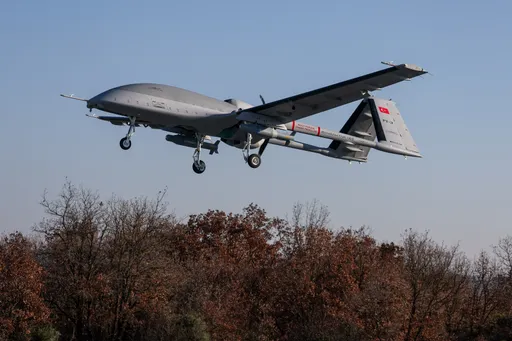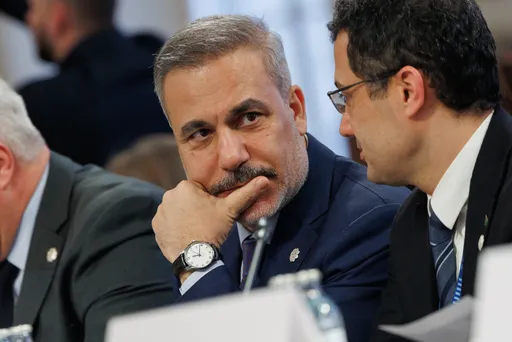It’s not immediately clear what led to the Saudi authorities blocking two Turkish online news portals, TRT Arabi and Anadolu Agency, but the decision is in continuation of Riyadh's recent policy towards Ankara.
Under the stewardship of Crown Prince Mohammed bin Salman (also known as MBS), Saudi Arabia has taken an increasingly antagonistic stance towards Turkey.
Such policies do not manifest in official proclamations but rather in behind the scenes diplomatic lobbying, petty gestures such as refusing to drink Turkish coffee, and the online vitriol targeting Turkey by legions of Saudi Twitter trolls.
On the diplomatic front, while Riyadh denies it, in December Saudi leaders threatened Pakistan with the withdrawal of aid and the expulsion of expatriate workers if Islamabad attended an Islamic unity summit in which Turkey was a major player in organising.
On the social media front, pro-MBS trolls have disseminated videos calling for Arab tourists to stop visiting Turkey, citing fictional or exaggerated reports of crime and harassment.
Saudi bots continue to thrive on Twitter, pumping out misinformation on issues related to Turkey and Riyadh’s regional nemesis, Qatar.
The Saudi Interior Ministry has simply cited "violations of the ministry's regulations" in its explanation for blocking the Turkish websites. The move, however, was preceded by a torrent of tweets by Saudi trolls and bots, calling for Turkish media outlets to be suspended.
Riyadh commands a massive Twitter army composed of programmed bots and fellow travellers, which help to disseminate government talking points. Despite frequent purges by Twitter administrators, the operation still remains in effect.
Their efforts are bolstered by networks, such as the UAE-based Sky News Arabia and Al Arabiya, which regularly beam out negative coverage of Turkey.
A November 2019 TRT Arabi article by journalist Ibrahim al Olabi demonstrated some of the strategies used by Saudi media assets to influence perceptions of Turkey among Arab populations.
Olabi described how outlets such as Sky News Arabia were disproportionately focused on Turkey, despite their ostensible remit to focus on nearly two dozen Arab states.
These stories aimed to create a sense of negativity around all aspects of Turkish society, ranging from its economy to its political situation, Olabi argued. Such efforts to target Turkey’s reputation among Arabs had strengthened in the last few years, he said.
Saudi efforts to stifle the popularity of Turkish culture in the Arab also extend to its entertainment output, such as wildly popular Turkish dramas.
In 2018, Saudi-owned Middle Eastern broadcaster MBC took Turkish shows off air in a move that was not explained.
Nevertheless, Turkey remains a popular destination for Arab tourists despite recent rock relations with Saudi Arabia and the UAE, and a recent poll by the BBC found that President Recep Tayyip Erdogan was the most popular figure among young people in Arab countries.
Khashoggi and Qatar
The most recent ruptures in Saudi-Turkish relations can be whittled down to two major events.
Saudi Arabia’s plans to blockade its neighbour Qatar into submission in 2017 were thwarted by Turkey’s swift intervention, which included diplomatic support, food deliveries via air, and the deployment of Turkish soldiers to the Gulf emirate.
The second, and perhaps the most damaging to MBS personally, was the aftermath of the murder of Saudi dissident Jamal Khashoggi in Istanbul in October 2018.
Khashoggi was killed by a Saudi government hit squad while visiting the country’s consulate in Istanbul to obtain routine paperwork.
Turkish and Western intelligence agencies have concluded that MBS ordered the assassination of the Washington Post journalist, a charge MBS flatly denies despite the mountain of evidence.
The case and the insistence of the Turkish authorities to pursue justice for Khashoggi completely destroyed the image of a progressive Arab ruler that MBS was trying to craft in the year preceding the killing.
TRT Arabi and Anadolu Agency have been key journalistic players in investigating the aftermath of the killing and other aspects of life in Saudi Arabia under the autocratic rule of MBS.
This includes his crackdown on figures within civil society and the religious domain, such as women’s rights activists like Loujain al Hathloul and religious scholars like Sheikh Salman al Awda.
Hathloul, a 30-year-old, has been forcibly divorced after Saudi authorities pressured her husband, and continues to experience torture at the hands of the regime.
Awda, faces the death penalty, after attracting the ire of MBS for refusing to back the Saudi blockade of Qatar.
























